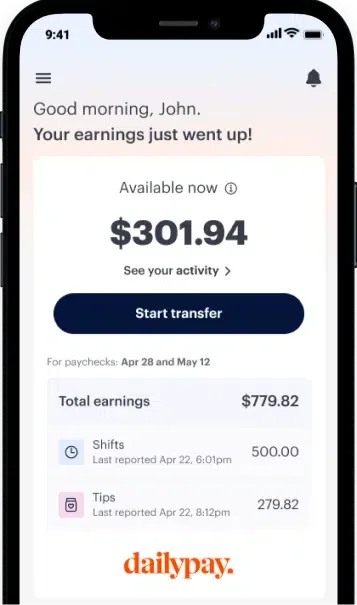According to a recent survey from the Consumer Financial Protection Bureau, almost a quarter of consumers have no emergency savings at all—39% have less than a month of income saved, while 37% have a month or more.
The goal is to make saving a habit so you’re regularly putting money toward your future. Here are seven actionable tips for getting there.
1. Start small.
The New York Times bestselling book Atomic Habits by James Clear highlights the quiet power of making small, simple changes. It’s built on the idea that doing so can eventually lead to lasting behavior change. How does this apply to your savings account? Start where you are and consider how much you currently save each month. It probably isn’t realistic to go from saving nothing to setting aside $100 per paycheck. A goal that’s too lofty could set you up to fail. Instead, a more effective approach might be to set the bar much lower, then make a plan to increase your savings little by little over time.
2. Update your spending plan.
Saving can feel hard when there isn’t much disposable income left over each month. Consider revisiting your budget to see where your income is going. This involves looking at your income and expenses, then adjusting accordingly. Maybe you can reduce or eliminate nonessential bills, or find other ways to cut out overspending. Freeing up extra money each month can make saving a little easier.
3. Make it automatic.
If saving feels like work, you may be less likely to follow through. Even having to log into your bank account and initiate a transfer from your checking account to your savings account can be a task that gets overlooked month after month. Once you create a savings target for each paycheck, make it a line item on your budget to prevent overdrawing your account. Then set up automatic transfers to your emergency fund. This way it’s out of sight, out of mind.
4. Change your mindset.
As simple as it sounds, reframing the way you look at saving can make a big difference. One 2020 research study found that people are more likely to save when they focus on daily dollar amounts—as opposed to monthly contributions. For example, saying you’re going to save $150 every month can feel intimidating and possibly out of reach, but folks who looked at it as saving $5 a day were more likely to commit to a personal savings regimen and stick to it.
5. Make it fun.
According to the Consumer Financial Protection Bureau, research shows that gamification can help students develop financial habits. This can translate to adults too. It involves finding ways to incorporate game elements and game-based thinking that plays on creativity and collaboration. In practice, it means finding a way to turn saving into a game. There are lots of savings apps that use prizes, leaderboards, points and rewards to incentivize saving. It could make saving feel less like a chore and more fun.
6. Build in rewards.
Whatever your savings target, think about breaking it up into smaller benchmarks. Every time you hit one of those mini-savings goals, treat yourself to a budget-friendly splurge. This can be as simple as ordering in from your favorite restaurant, getting a pedicure, or buying a new book or movie. You can choose something highly motivating and only let yourself have it when you’ve reached a saving milestone. You can also opt for smaller rewards as long as they get you excited to save.
7. Track your progress.
Tracking your progress as you go can provide some built-in accountability. It doesn’t have to be anything fancy. Consider pouring yourself a cup of coffee every weekend and reviewing your spending from the week prior. If you fell short of your saving target, see if you can troubleshoot what got in the way to prevent it from happening again. According to research from the American Psychological Association, frequently monitoring progress toward goals increases the odds of success.
At DailyPay, we understand that a strong emergency fund can go a long way in supporting financial wellness. Our services were designed with financial empowerment in mind.

